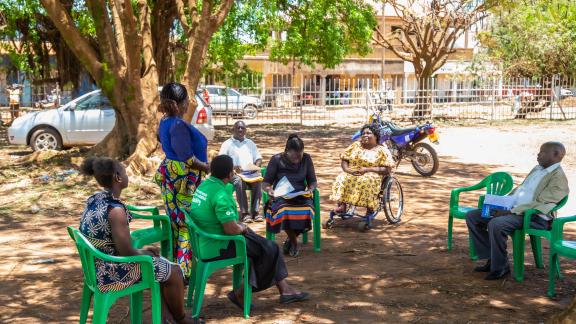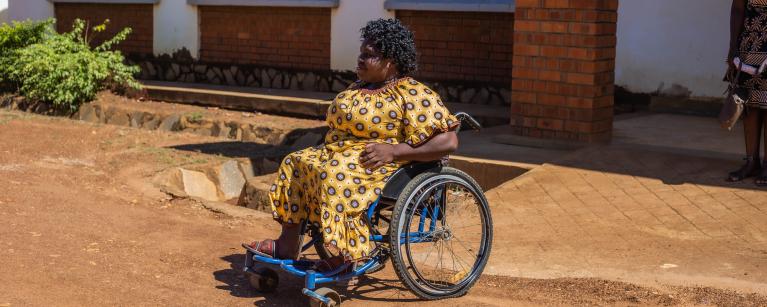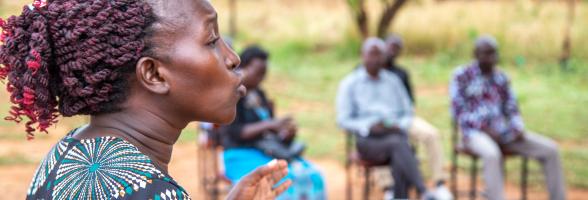People living with disabilities still experience a number of challenges in Uganda, such as limited accessibility, inadequate educational structures and difficulties in employment. These usually result in discrimination, and social exclusion and may sometimes affect their mental health.
Oxfam is working with partners in Uganda to break barriers that limit women especially those living with disabilities through capacity building, and leadership training to voice their concerns to reduce the consequences that they face.
Nemungu Claire Doreen, a Councillor representing People living with Disabilities in Nebbi District Local Government is one of the members who benefited from the training. She notes that most often, people living with disabilities are marginalised and miss out on opportunities.
Doreen narrates what she has achieved from leadership trainings offered by Oxfam and Uganda Womens' Network (UWONET) under the Women in leadership program.
‘’As an elected councillor, I have been lobbied for the people living with disabilities in my district. I used my influence from the knowledge I received from the training to lobby for the ramps at the district headquarters and other public places,’’ she added. I also started an organisation, Nebbi Association of Women with Disabilities, she adds.
“‘’As an elected councillor, I have been lobbied for the people living with disabilities in my district. I used my influence from the knowledge I received from the training to lobby for the ramps at the district headquarters and other public places,’’ Nemungu Claire Doreen, a Councillor representing People living with Disabilities - Nebbi District Local Government ”
She added that previously, most buildings constructed in her communities were not considerate of the people living with disabilities – most especially the physically disabled persons, which gives them challenges with accessibility.
In addition to lobbying for ramps, Doreen noted that women leaders have been empowered to compete with male counterparts in bringing constructive solutions to the communities and leadership meetings.
‘’In the past, women would not talk the way they talk these days. When you come to the Council, you will admire the way they talk. Our male counterparts used to dominate us. Leadership was designated to them. When women would try to say anything, our male counterparts would make funny noises and our women councillors would shy away. But these days they compete with the men,’’ Doreen noted.
Despite all their achievements, she is still faced with an unfriendly working environment. ‘’I am always challenged with the raised podium. I sit in a wheelchair, and when I am presenting, I have nowhere to put my documents. I also can’t move around freely. The environment and infrastructure are not friendly for people with disabilities,’’ she added.
Doreen hopes to grow her organisation and employ women and people living with disabilities. She also encouraged people with disabilities to join different government programmes to improve on their livelihood.

Doreen attending the meeting led by the women's caucus at Nebbi District Local Government Head Quarter

